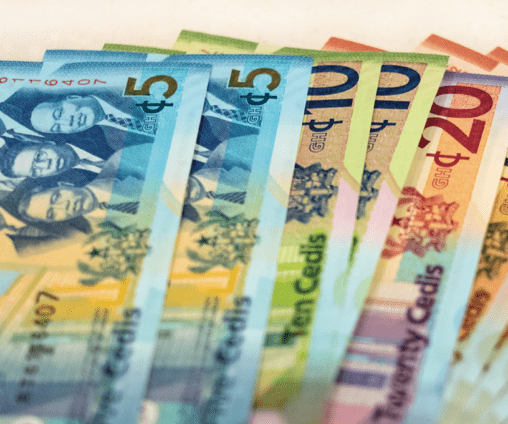The cedi is making headlines for all the right reasons.
After months of steady gains, the local currency has staged a powerful comeback, appreciating by over 33% since its lowest point in November 2024.
As of July 17, 2025, the cedi was trading at GH¢10.40 to one US dollar on the interbank market, up from ₵14.95 at the beginning of the year, and far stronger than its November 2024 low of ₵16.53.
This surge, confirmed by the Ghana Statistical Service (GSS) and the Ghana International Trade and Finance Conference (GITFiC), is now shaking up dollar-priced sectors of the economy in ways few anticipated.
For businesses that quote prices in dollars, especially luxury hotels, upscale restaurants, and real estate developers, the stronger cedi is delivering a boost.
A $200 hotel room that once cost nearly ₵2,700 now costs about ₵2,036, making high-end hospitality more accessible to locals and diaspora visitors.
Fine dining establishments that price in dollars are now offering better value in cedi terms while maintaining healthy profit margins.
Tour operators have also gained traction, with dollar-based tour packages now more affordable for local clients, supporting a rebound in domestic tourism.
The real estate market is also experiencing a shift.
Developers targeting high-net-worth individuals and international investors typically price homes in dollars, especially in elite neighbourhoods like Airport Hills, Cantonments, and Labone.
Today, a $500,000 property that was once priced at around GH₵6.7 million is now going for just over GH₵5.1 million.
This price drop has expanded the buyer pool and sparked renewed interest in high-end property investments.
Import-heavy businesses, those that bring in machinery, electronics, raw materials, and vehicles, are arguably the biggest winners in the short term.
With costs now significantly reduced, many companies are reporting improved margins.
The Trade Ministry projects that these savings could translate into lower consumer prices within 60 days, once old inventory purchased when the cedi was weaker is cleared.
At the same time, companies involved in international trade are finding it easier to hedge currency risks, while foreign-invested firms in mining, oil, gas, and agro-processing are enjoying better local returns on their dollar inflows.
However, not everyone is gaining.
The cedi’s recent surge may be music to the ears of consumers, but for businesses that price in dollars, it’s a mixed tune.
Sellers in sectors like luxury real estate, high-end hospitality, and imported goods are seeing slimmer margins as the stronger cedi means fewer local currency returns for every dollar charged.
A $500,000 property now fetches significantly less in cedi terms than it did months ago, while dollar-priced services like hotel stays and tours are becoming cheaper for locals but tougher on bottom lines.
With pricing power weakened, sellers must rethink their strategies, either adjusting prices, localising offerings, or absorbing the hit.
The stronger cedi rewards the buyer, but challenges the seller to stay competitive in a changing market.
Exporters of cocoa, gold, and artisanal goods are facing tighter margins. With the cedi now stronger, every dollar they earn converts into fewer local currency units, reducing their profits.
Traders holding stock bought at previous exchange rates are also under pressure, particularly if they’re unable to adjust prices quickly.
Experts attribute the cedi’s strength to a blend of local and global factors.
The Bank of Ghana’s 28% interest rate and tight monetary controls have played a central role in stabilising the currency.
Meanwhile, $490 million in forex interventions, strong gold and cocoa export revenues, and the $3 billion IMF program have reinforced investor confidence.
The global weakening of the U.S. dollar due to international trade tensions further supported the cedi’s gains. Macroeconomic indicators reflect this momentum.
Inflation eased to 18.4% in May, its lowest in over two years, bringing welcome relief to households.
Foreign reserves have risen to $10.7 billion, offering 4.7 months of import cover, while Ghana’s current account posted a $2.1 billion surplus.
A stronger cedi is also helping reduce the cost of servicing external debt, easing the burden on public finances. Still, experts urge caution.
A report by GITFiC warns that without export diversification and strong fiscal discipline, the currency’s strength could be short-lived. Analysts at Databank also note that any benefits to consumers may be delayed due to the lag between procurement and retail pricing.
The cedi’s surge is changing the rules across several sectors.
For importers, hoteliers, developers, and foreign-invested firms, it’s a welcome turnaround. But for exporters and businesses managing old inventory, the transition is more complex.



